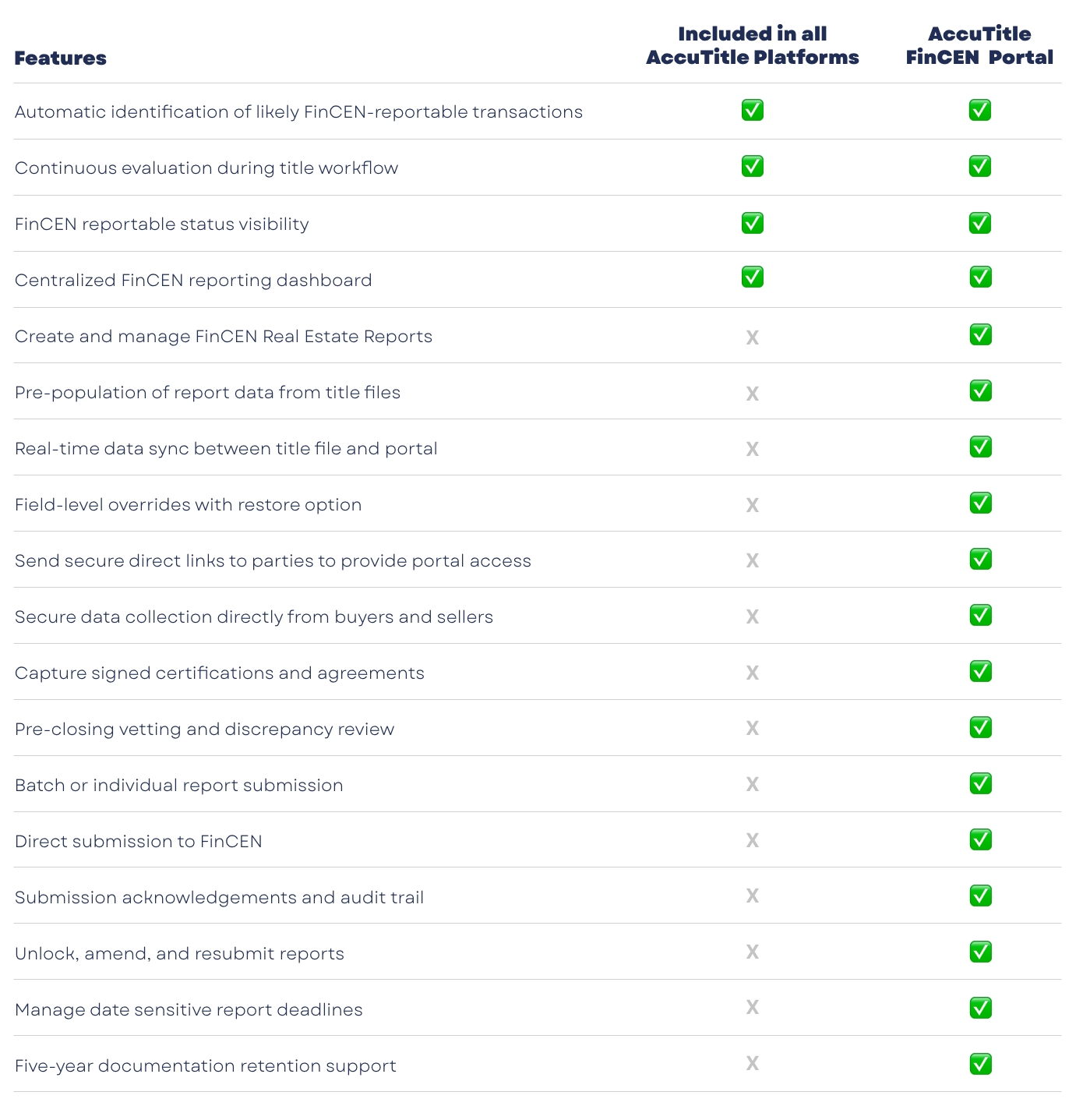AccuTitle FinCEN Portal
FinCEN Reporting & Compliance Portal
The AccuTitle FinCEN Portal is a tool available to all AccuTitle Title Management Platform users. The FinCEN Portal provides a streamlined, centralized solution to manage FinCEN reporting under the Residential Real Estate Reporting Rule—built specifically for title professionals and the realities of title workflows.
AccuTitle combines early identification of reportable transactions with a secure, purpose-built reporting portal, helping title agencies reduce manual work, improve accuracy, and confidently meet FinCEN requirements.
How FinCEN Reporting Works With AccuTitle Platforms
1. Built-In Identification (Included with All AccuTitle Platforms)
All AccuTitle Platforms continuously examine transaction details to determine whether a transaction meets FinCEN reporting criteria.
This automated evaluation is included with every AccuTitle platform—no additional service or setup required.
2. Centralized Reporting with the AccuTitle FinCEN Portal (Paid Service)
From early identification to final submission, the portal helps title professionals manage FinCEN reporting efficiently and confidently.
For details on the AccuTitle FinCEN Portal, read our blog “A Smarter Way to Manage FinCEN Reporting for Title Professionals” blog.
AccuTitle FinCEN Portal – Reporting & Submission Service
- Introductory Pricing: $119 per successfully filed report (Full Price: $150)
- No registration required
- No upfront costs
- No monthly minimums
- No charges unless a report is filed
To learn more about FinCEN requirements and how they impact residential real estate transactions, visit our FinCEN Regulatory Blog.
How FinCEN Reporting Works With AccuTitle
FinCEN Reporting Capabilities:

